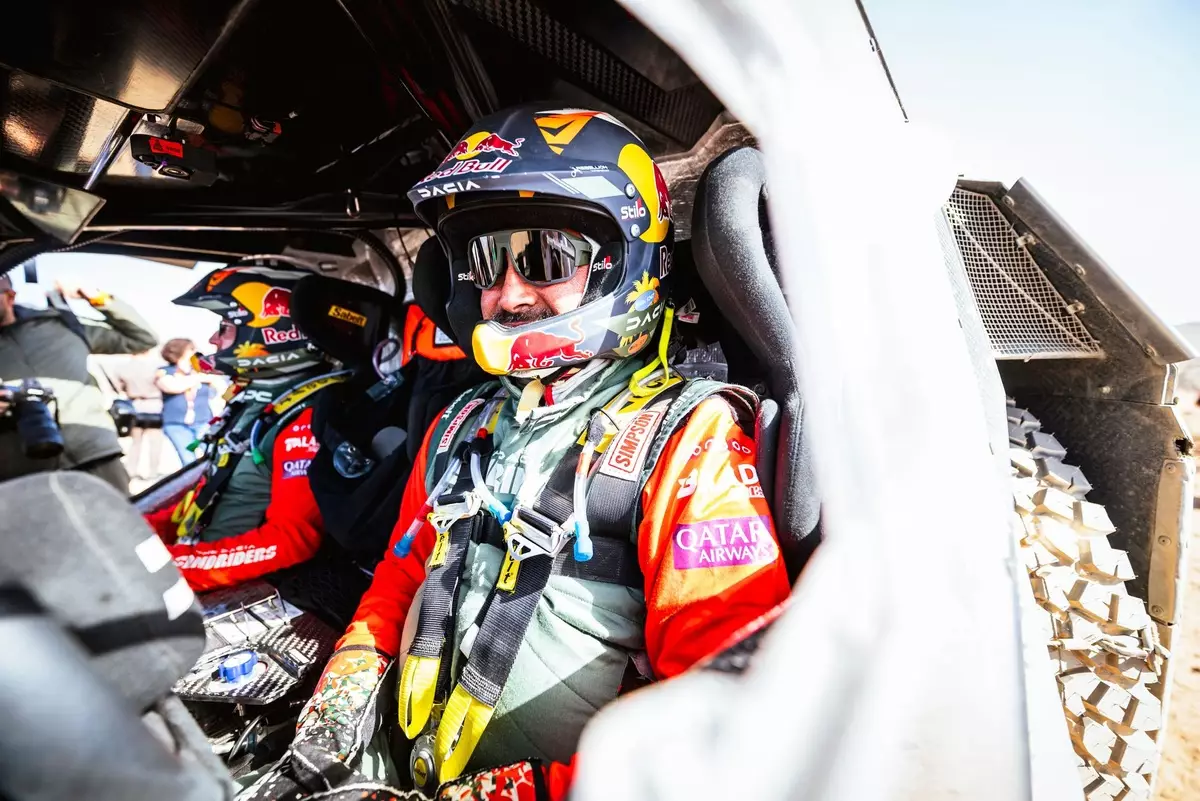The Dakar Rally, a grueling test of endurance and skill, has once again shown that it is not just a competition of speed and strategy but also a battleground for rule enforcement and safety protocols. This year, the spotlight has fallen on Dacia driver Nasser Al-Attiyah, whose recent criticisms of the FIA highlight a significant divide between drivers and the governing body. Following the controversial decision to disqualify fellow competitor Carlos Sainz Sr. from the 2025 rally, Al-Attiyah’s outcry sheds light on the complexities of safety regulations in extreme motorsport events.
The FIA’s justification for preventing Sainz Sr. and his fellow competitor, Sebastien Loeb, from continuing in the rally revolves around concerns for driver safety following roll cage damage in separate accidents. The FIA claimed it could not assure the safety of the drivers in potential repeat incidents, a stance that ignited frustration from Al-Attiyah. He expressed disbelief at the FIA’s reasoning, arguing that the rules surrounding chassis repairs are too ambiguous and fail to align with the spirit of cross-country racing.
Al-Attiyah’s assertion that “we’re not in Formula 1” emphasizes his belief that the context of rally racing requires a different approach to safety and repairs. In Formula 1, the stakes and circumstances differ vastly from the rugged terrain of the Dakar Rally, where the ability to adapt and repair is essential for survival and competition.
Al-Attiyah’s critique not only targets the FIA’s enforcement of safety protocols but also raises broader questions regarding the efficacy and clarity of regulations in motorsport. As he noted, if a team can safely repair a damaged vehicle, why was the FIA quick to end Sainz’s and Loeb’s chances? In rally sports, where mechanical failures can turn the tide of competition, the rigidity of regulations may stifle racers’ competitiveness and spirit.
This situation posits an essential debate: should safety regulations allow for greater flexibility when the circumstances are deemed manageable by the competitors and their teams? Clearly, this dilemma suggests a need for the FIA to revisit its policies and engage in an open dialogue with participants who live through these challenges. The sport requires not just governing but understanding of the inherent unpredictability it entails.
In addition to the disqualifications, another layer of controversy unfolded as Al-Attiyah himself faced a 10-minute penalty during Stage 5 for losing a spare wheel. His frustration was palpable as he lamented that a minor oversight led to a substantial disadvantage, robbing him of a potential stage victory by merely one second. Al-Attiyah’s intention to appeal to FIA President Mohammed Ben Sulayem illustrates his commitment to fairness and integrity within the sport.
His argument revolves around the claim that losing a spare tire should not hold such severe repercussions, especially when the circumstances were beyond his immediate control. Al-Attiyah is seeking changes that would ensure penalties are warranted and reflective of the competitive conditions of the rally.
Despite these setbacks and apparent injustices, Al-Attiyah remains undeterred. Positioned fourth in the overall standings and trailing leader Henk Lategan, he remains focused on the final stages of the rally, determined to fight back. His confidence in his ability to overcome a time deficit indicates a strong competitive spirit, as he aims to add another victory to his illustrious career and inch closer to the revered eight-win record held by Stephane Peterhansel.
The next six days promise to be challenging, not just for Al-Attiyah but for all competitors vying for victory in the unforgiving environment of the Dakar Rally. As tensions between FIA and drivers continue to simmer, the outcomes of their competitions will almost certainly reflect both how well they navigate the physical challenges of the terrain and how they respond to the evolving regulatory landscape.
The events unfolding at the Dakar Rally remind us that motorsport is not just about competition; it encompasses a triad of skill, endurance, and regulatory fairness—a balance that is essential for fostering the true spirit of racing.

